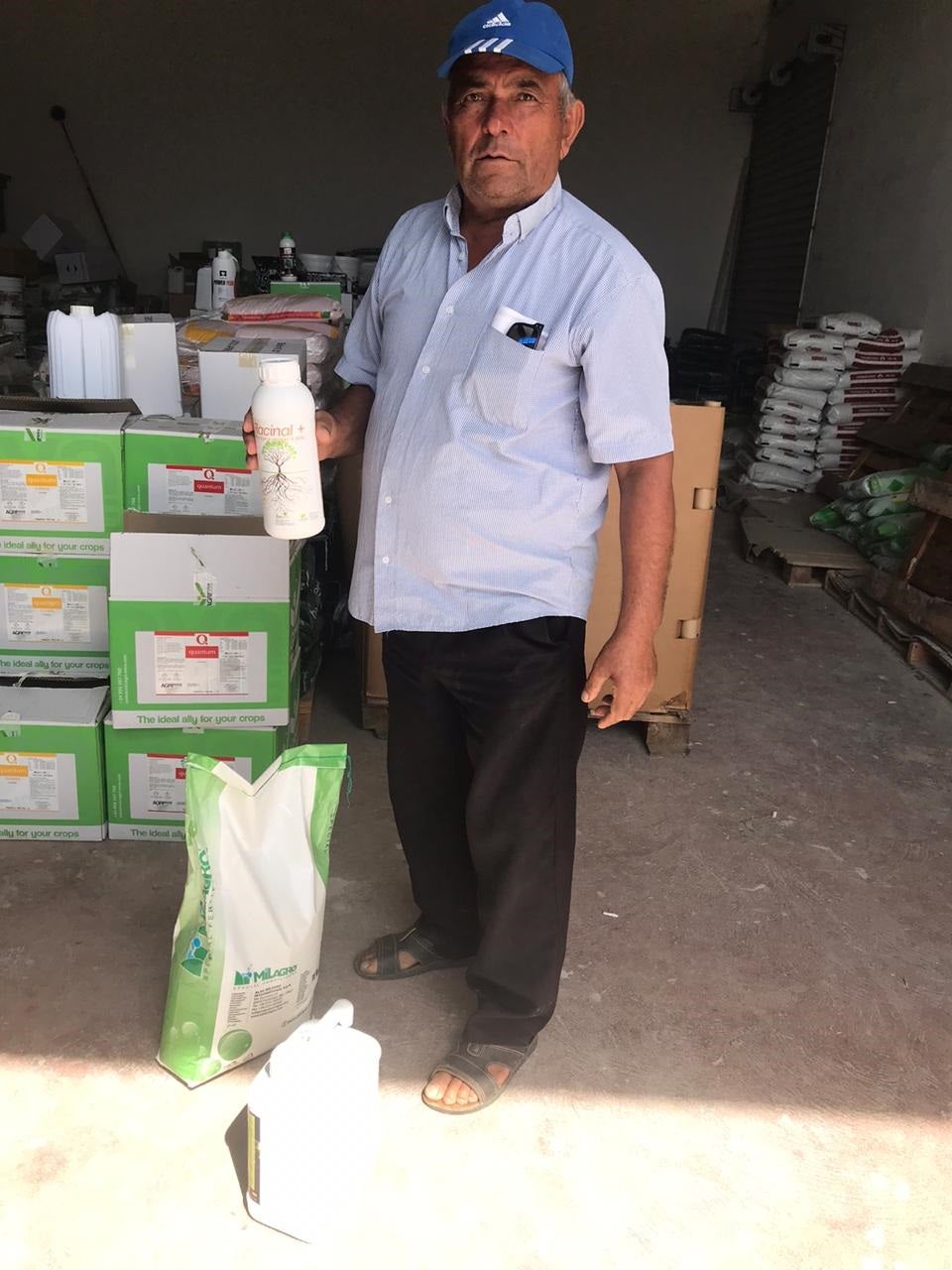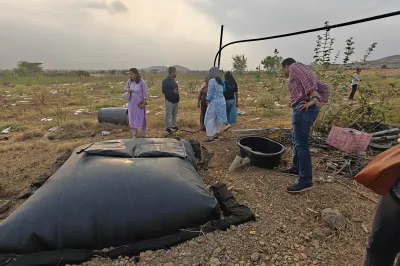3 Lessons for Building Resilience Through Customer Centricity
“I did not expect this support from FED invest,” said Sotir. “This is a valuable service to farmers, and I am very happy because no one offers any help to agriculturists … I was worried at the start of the vegetable planting season if I would have any money, and be able to plant my crops.”
Sotir (name changed to protect identity), is one of 250 smallholder farmers who received assistance from FED invest and JICA to help overcome disruptions due to the COVID-19 lockdowns. Like many of the smallholder farmers in Albania, he struggled to sell his produce, anticipated delayed payments from buyers, and struggled with rising prices of agri-inputs before the next sowing season. Albania, like many other countries, had imposed 16-hour curfews across the nation in the spring of 2020 and closed inter-city travel and international borders. The closure of public sales markets meant harvested produce could not be sold, and most smallholders lacked storage facilities. For smallholder farmers like Sotir, who make up 30% of the working population, access to credit could have helped them through these difficult times. However, less than 2% of the country’s smallholders have access to formal credit services, so these disruptions meant deep financial losses.
FED invest, Albania’s largest financial cooperative with 77,000 members, is one of the leading institutions delivering financial services to farmers. Several months after the onset of the pandemic, FED invest realized that their members working in agriculture did not qualify for financial support offered by the government. Since meeting the farmers in-person was difficult, FED invest worked with the Financial Inclusion of Albanian Smallholders (FiAS) Project, supported by the Japan International Cooperation Agency (JICA), to conduct a rapid survey on COVID-19's impact over the phone with 205 smallholder households across Albania within a few weeks. The survey identified soaring agricultural input prices as a key issue for FED invest members. For farmers already struggling with disrupted incomes, these increasing expenses put additional pressure on household incomes in the short run and posed longer-term dangers to food security — especially for the poorest smallholder farmers, who engage in subsistence agriculture.
In response to the survey findings, the FiAS Project designed a unique agri-input support scheme for members of FED invest. Under the joint initiative, farmers received in-kind support of agri-inputs, such as fertilizers, pesticides and seeds, worth 40,000 Albanian leke (about $400) per person. Farmers picked up the inputs at a trader outlet of their choice, where they could select what they needed instead of receiving a pre-conceived package of inputs. As part of this initiative, FED invest encouraged agri-input traders to become FED invest members and helped them open current accounts, a new product launched by FED invest. This enabled FED invest to pay the traders through their current accounts within three days of farmers picking up the inputs. FED invest also encouraged its member farmers to apply for loans to purchase additional inputs. Loans were disbursed directly to farmers’ current accounts, allowing farmers to withdraw funds as needed to pay input traders digitally.
Between June and November 2020, FED invest assisted 250 smallholders with the agri-input scheme, across six major regions in Albania, while growing its business across the country. What did FED invest learn in the process of designing and implementing this solution? Here are the three top takeaways.
1. Designing effective solutions starts with listening and communicating for action

A customer-centric approach is one that puts customers at the heart of their work, builds on insights about their lives, and creates processes and experiences that provide value for customers. As a member-led organization, FED invest had long taken a customer-centric approach to its work and focused on member-centered business practices. As a result, it enjoyed the trust of loyal customers built on its friendly business style and close, personal interactions with members.
As FED invest expanded operations before the pandemic, it realized that it needed to build this loyalty with new customers who had varying needs. Through its work with the FiAS Project, FED invest built a systematic way of listening to a wider range of current and potential customers, beginning with a needs-assessment survey among 1,000 smallholders. This collaboration led FED invest to adopt several internal processes to gather, analyze and translate customer insights into business action.
When COVID-19 hit, this experience with customer-centric research became useful in designing and conducting the rapid survey on how the pandemic was impacting smallholders. The rapid survey helped with identifying key issues quickly, articulating and communicating the evidence clearly with the external party (in this case JICA, which was prepared to extend the necessary support), and translating the problem into the agri-inputs solution, which was designed around customers.
2. Customer centricity is about weaving multiple insights together
FED invest knew through its research that its customers lacked digital capabilities, although the rapid survey showed that the pandemic had made farmers like Sotir much more open to trying digital financial transactions.
The pandemic prevented in-person training to build this capability; however, research also showed that agri-input traders played an important role in the agri-supply chain, as providers of pricing and other market-related information, and that they were influential with farmers. Furthermore, agri-input dealers were comfortable with digital financial services and eager to help smallholder farmers affected by the pandemic.
FED invest used this knowledge to design an innovative solution in which farmers chose the inputs they needed at their local agri-input store and agri-traders were paid digitally via current accounts. This allowed FED invest to facilitate safe transactions while leveraging the agri-traders’ influence to encourage farmers to try the current account product.
3. Customer centricity builds resilience by generating customer and business value
Timely assistance during COVID-19 — based on a deep understanding of the customer — has helped FED invest earn the loyalty of farmers like Sotir and reduce the number of requests they would have received for loan restructuring. The scheme has also helped increase FED invest’s membership. Several agri-input traders joined FED invest to participate in its COVID-19 initiative and have continued to use their current accounts. They are enthusiastic about helping farmers and have emerged as strong ambassadors for FED invest. The COVID-19 agri-input support scheme has even built awareness about FED invest in areas where the organization had a thinner presence, with customers beginning to inquire about a possible second round of benefits.
The impact of the pandemic continues to unfold in Albania, and FED invest is now engaged in a second round of input support provision while evaluating how the impact of the input-support scheme can translate into other relevant products. Throughout the process, FED invest’s biggest insight has been that listening to customers and understanding their lives can allow organizations to react quickly and effectively, even during times of crisis.
Hiroko Tanaka leads the JICA consultant team as a part of the FiAS project. Jayshree Venkatesan is an independent consultant and a senior policy fellow at the Leir Institute, the Fletcher School of Law and Diplomacy.




Add new comment